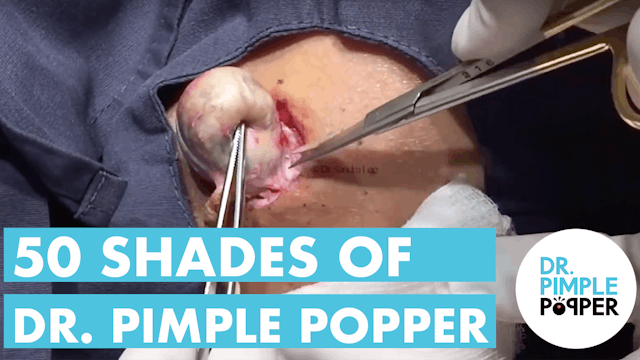An epidermoid cyst is a non-cancerous growth commonly found on the skin of the face or neck, but can occur anywhere on the body. Just as its name suggests, these cysts occur as a result of epidermal cells, cells from the top layer of your skin a.k.a the epidermis, overgrow in a confined space. The buildup of these cells under the skin results in a “cheesy” consistency and often a pungent odor! Epidermoid cysts are typically harmless and have no symptoms, but people often seek removal due to the appearance of the bump or because the cyst has become inflamed or ruptured. If you have a ruptured cyst you may notice, sudden redness, pain, swelling, and heat around the area, all of which can lead to an abscess forming. Surgically removing the cyst can cure the area, but the entire cyst sac and all of its contents need to be removed to ensure the cyst won’t grow back!
Blackheads are something we are all familiar with, but did you know they are also called open comedones? Blackheads are usually caused by a pore that gets clogged with keratin (skin protein) and sebum (oil). Given the black color many believe these spots are clogged with dirt, but really it’s the exposure to air that oxidizes the clogged pore and turns it black. Don’t worry though, most blackheads can be extracted with a trusty comedone extractor!
Up Next in Extreme Excisions
-
50 Shades of Dr. Pimple Popper (Part 1)
-
Difficult lipoma to remove on the Upp...
Lipomas are slow-growing, benign (non-cancerous) growths of fat cells. These cells are contained in a thin capsule that creates the appearance of a “bump” right under the skin. Lipomas are typically not tender, move around easily, and don’t require treatment. However, some lipomas may sit in plac...
-
The Bermuda Triangle: Cyst Excision (...
Part 2: https://allaccess.drpimplepopper.com/videos/the-bermuda-triangle-removing-cyst-2-3
Part 3: https://allaccess.drpimplepopper.com/videos/the-bermuda-triangle-part-3-removing-hannah-after-removing-her-cystersAn epidermoid cyst is a non-cancerous growth commonly found on the skin of the fac...




8 Comments